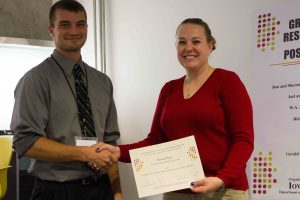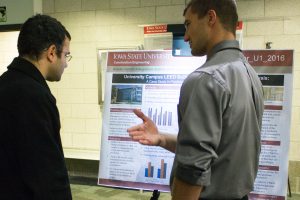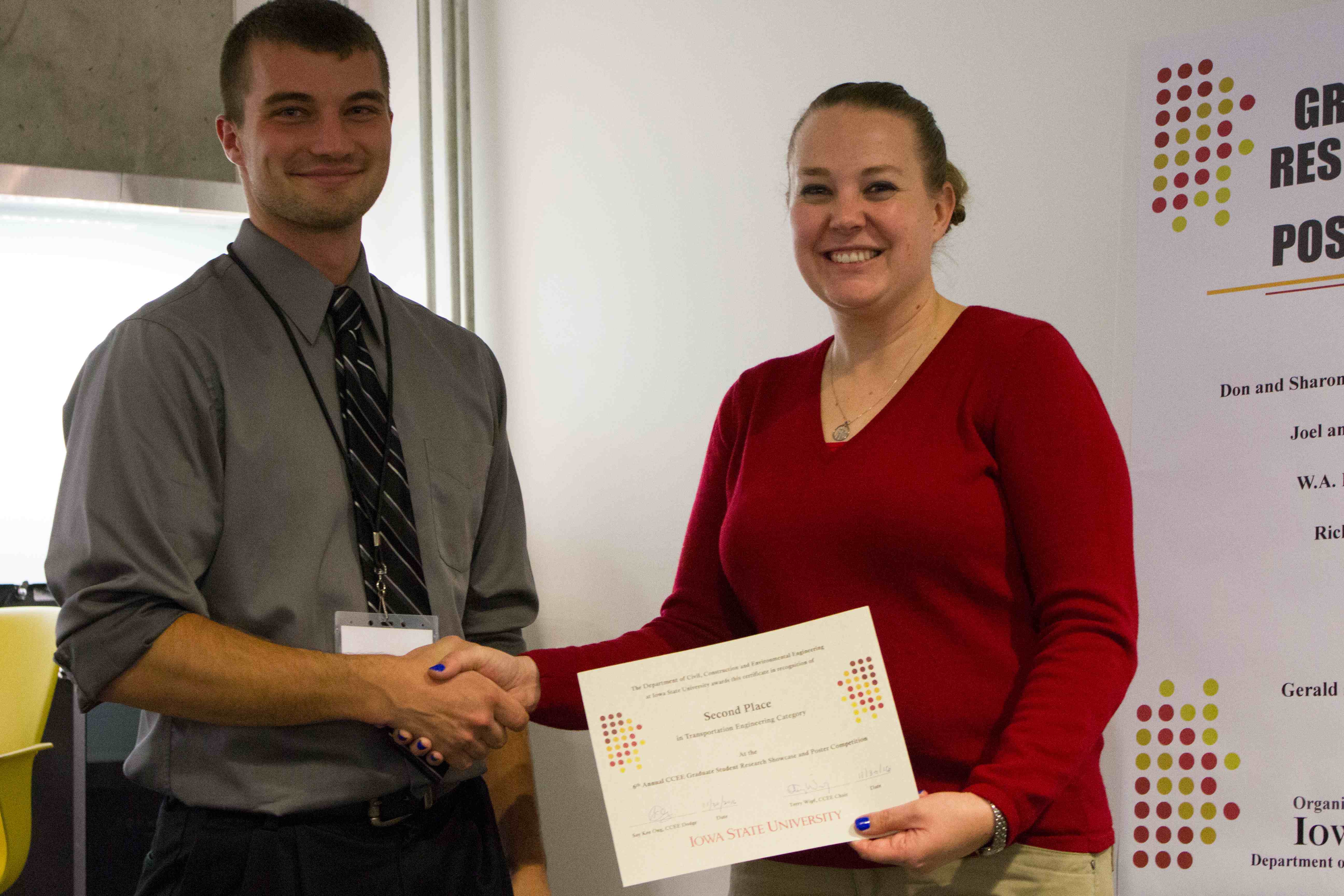Undergraduate researcher earns engineering capstone project award at University Honors Poster Presentations

When Brandon Ophoff presents his research, he can’t help but learn something new.
“Each time, people ask questions and then it makes me think a little bit deeper,” Ophoff said. “So as I’m presenting, I’m learning more.”
Ophoff has had multiple opportunities to share his work in the past couple of weeks. This year, the construction engineering senior’s research, “University Campus LEED Building Energy Consumption Analysis: A Case Study in Predicted Versus Actual Energy Consumption,” was selected by College of Engineering Honors Program evaluators as the best among engineering capstone projects presented at the Fall 2016 Honors Poster Presentations.
“Brandon’s project was a good example of a student taking his education to the next level by applying his engineering capabilities – and his learning skills – to a real-world problem,” said Amy Kaleita, chair of the College of Engineering Honors Program committee.
In addition to the University Honors Program presentation, Ophoff presented at the Sixth Annual CCEE Graduate Student Research Showcase and Poster Competition. Hosted by the Civil, Construction and Environmental Engineering (CCEE) Graduate Student Council, Ophoff earned fourth place overall in the event.
His project advisor, Dr. Kristen Cetin, says she’s not surprised by his success.
“I can rely on him,” Cetin emphasized. “He’s very studious, he’s an excellent student, he’s an excellent speaker and very meticulous.”
Ophoff’s research focused on the energy consumption of Iowa State University’s (ISU) Biorenewables Research Laboratory. He was approached by representatives of ISU Facilities Planning and Management with the project idea. The Biorenewables Research Laboratory is a LEED-certified building. Leadership in Energy and Environmental Design, or LEED, is a rating system for the United States Green Building Council to evaluate the energy performance of a building. As ISU builds LEED-certified buildings, Cetin says models can be evaluated to make improvements to future buildings.

Ophoff found that the laboratory was consuming four percent less energy than originally predicted; however, energy consumption was leading to 25 percent more spending on utility bills. He concluded that model assumptions would need to be updated to account for current utility rates. He also suggested further research of the building systems to find sources of consumption discrepancies.
Cetin hopes that more undergraduates will pursue research.
“My strategy is to try and be a good mentor, to not just tell them ‘work on this project,’ but try and help them understand the process and make it a learning experience for them,” Cetin said.
Early on, Dr. Jennifer Shane, an associate professor in the department of civil, construction and environmental engineering and Ophoff’s advisor, encouraged Ophoff to take the project. She invited him to present to one of her engineering classes this week and urges other undergraduates to reach out to professors for research opportunities.
“Research work can benefit students considering graduate school as well as careers in industry,” Shane said. “Brandon has benefited personally and professionally from this experience. He has learned skills that he can use specific to his future in industry as well as skills to tackle problems and find information through research that is otherwise not obviously available.”
The Fall 2016 Honors Poster Presentations and the CCEE Graduate Student Research Showcase and Poster Competition were both held on Nov. 30. Keep up on undergraduate and graduate research on www.ccee.iastate.edu and via ISU CCEE Facebook, Twitter, and LinkedIn (Iowa State University Civil, Construction and Environmental Engineering and ISUConE).
